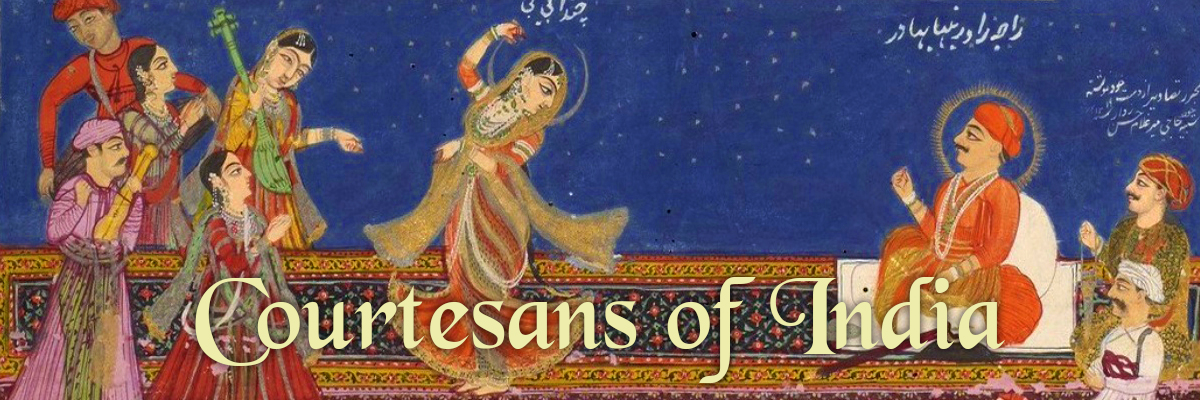This 1983 docudrama examines an enclosed area of Mumbai known as Pavan Pool, a low-income apartment community home to many courtesans. The film explores their daily lives and showcases their performances. Notably, much of the work is scripted: its three interview subjects (a landlord, a retired courtesan and a frequent patron) are all played by actors whose lines were written by screenwriter Ruth Prawer Jhabvala. The landlord speaks about the working conditions at the compound, the retired courtesan speaks about how the tawaif practice has changed over time, and the patron speaks about his relationship with and perception of courtesans and their art. The scripted interviews are presented alongside footage of the real residents and performers of Pavan Pool, but videos of the real residents speaking amongst each other are not subtitled.
While the footage of tawaifs’ performance may be useful and interesting to our readers, the dramatization of the documentary draws some interesting ethical questions.
We highly recommend reading Geeta Thatra’s “Contentious Socio-Spatial Relations: Tawaifs and Congress House in Contemporary Bombay/Mumbai” alongside viewing this documentary.
Questions to Ask About Courtesans of Bombay and Other Documentaries
- This documentary was commissioned by BBC Channel 4. It was made by British people for British consumption. How might this funding and purpose affect the documentary’s content?
- Given that this film’s subtitled speech—the speech understandable to an English-speaking British audience—is entirely scripted, can this film be accurately called a documentary? Is it drama? Is it both?
- To what degree do the Pavan Pool courtesans appear to be involved in constructing the film’s narrative? Whose insights are included and whose are left out?
- What real-life political impacts can documentaries have on the groups they feature? What ethical problems should documentary filmmakers consider when telling stories about marginalized groups? Could the Pavan Pool courtesans benefit from this film? Could the film cause them harm?
- The landlord consistently presents the Pavan Pool courtesans as naïvely causing their own financial ruin: according to him, they keep hoping for an improbable film contract, they fight each other over cheating men, and some cling to outdated and unprofitable traditions. What does this representation suggest about the courtesans? Are viewers encouraged to believe the landlord is well-informed and truthful? What other reasons might exist for why the courtesans are struggling? How could this representation impact the audience’s view of these courtesans’ agency?
